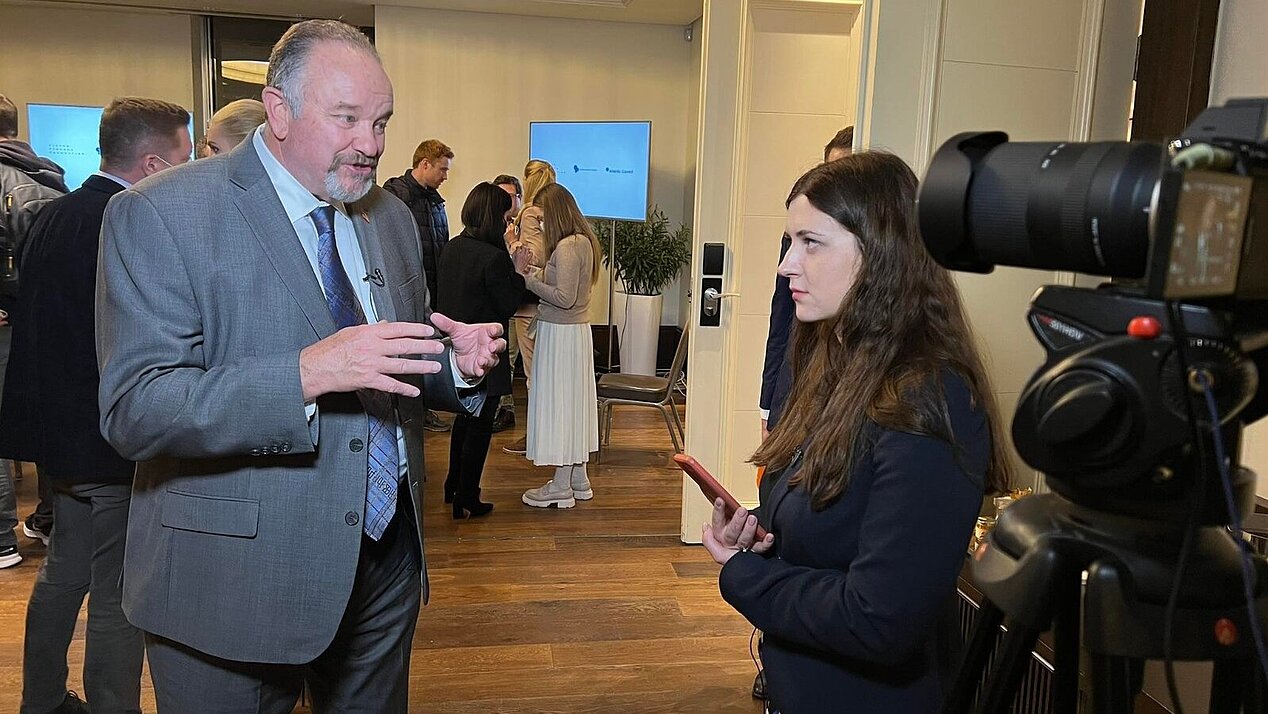Dieniezhna is a Ukrainian journalist and activist who began her career as an English translator and went on to work for Ukraine's biggest TV channel. Later, she worked as the Head of Communications and Advocacy for NAKO, a watchdog established to reduce corruption in the Ukrainian defence sector. In February 2022, she fled to Germany with her four-year-old daughter, her mother and her aunt. She now lives in Munich, working as a columnist for Süddeutsche Zeitung and teaching German to Ukrainian children. Her husband remains in Ukraine.
"If I just focus on refugee stories, they miss out on the bigger picture"
What is it like to be a journalist in exile?
Emiliia Dieniezhna: It is not easy. German readers are interested in local stories and, sadly, the western world's concern about the Russian-Ukrainian war issue is decreasing. The expectation of my German audience is different from what I want to write about: they mostly want to read about the life of Ukrainian refugees, especially about the Ukrainian children, how they feel and integrate into German society. But if I just focus on refugee stories, then they miss out on the bigger picture: I want to call for the German government to provide more weapons and save Ukraine. Everyone is dreaming about the end of the war, but it will not come without sufficient efforts. That's why I want to be more proactive and write stories which shape the narrative rather than reflect it.





